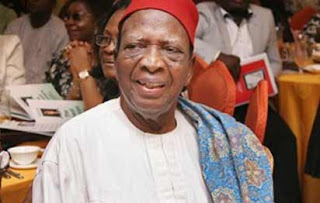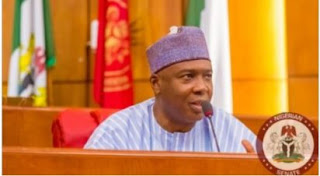NIMASA, ship-owners disagree over Nigeria’s failure at IMO council election ON December 27, 2017
The Nigerian Maritime Administration and Safety Agency, NIMASA and ship-owners have disagreed over the reasons for failure of the nation to be elected into the category C of the International Maritime Organisation, IMO's Council.
While the Director General of NIMASA, Dakuku Peterside attributed the failure to delay in approval by the presidency for the nation to contest as well as budgetary delay which resulted in late preparations, ship-owners under the aegis of Ship Owners Association of Nigeria, SOAN however blamed the failure on government's neglect of security, infrastructure, seafarers training and fleet development in the country's maritime domain.
The IMO is a specialized agency of the United Nations, responsible for the global standard-setting authority for the safety, security and environmental performance of international shipping.
The IMO Council is the highest governing body of the organization and it comprises three categories namely Category A, B and C. Category A comprises 10 countries with the largest interest in providing international shipping services; Category B comprises with the largest interest in international seaborne trade; while Category C comprises 20 countries not elected under category A or B, which have special interests in maritime transport or navigation, and whose election to the Council will ensure the representation of all major geographic areas of the world.
At the last election held November Nigeria contested and lost the election into Category C, as Egypt, Liberia, Morocco and South Africa were elected into the Council
Explaining the reasons for the Nigeria's failure at the election, Dakuku Peterside, while speking at the just concluded meeting of the 'G7 Friends of Gulf and Guinea Group' in Lagos, said that NIMASA spent less than N100 million for the IMO campaign and only three delegates attended the conference from NIMASA. He also mentioned that other countries like China, Singapore and United Arab Emirates attended the IMO meeting with a large retinue of delegates.
Dakuku also cited the delay in budgetary provisions from the Federal Executive Council; FEC which he said affected early preparations.
In his words, "Late preparations and the fact that we did not go round other countries like others did. It would have cost plenty of money, but we are not willing to spend such money. We had considered economic factors in context of our political aspirations.
"It is Nigeria that ran for IMO Category C and for you to use the name Nigeria, you must get the approval of the man who is managing all the country, the President just got elected, so it would have gone through a process, we have lost some time, after we got the approval, there are also budgetary processes to go through, even if the approval was given two years ago, we also need to do the background work to get budgetary provision for it before we begin the campaign, all these things affected our early preparations. But now that we know better, we are starting the next preparations immediately, because we deserve a place in the council of the IMO, these are what we meant by the late preparations" Dakuku said.
President of SOAN, Greg Ogbeifun, stressed that Nigeria 'failure of the IMO Council elections is a great setback for the nation's maritime sector.
Speaking to Vanguard, he said this was due to government's neglect on security, infrastructure, sea farers training and fleet development in the country's maritime domain has also contributed to failure in the elections.
He said: "Our performance at that election has dealt a hard blow on our psyche as a maritime nation. The world has told us that our maritime domain is sick and almost moribund, that we are not a maritime nation that can be relied on for maritime trade, maritime security, infrastructure or for seafarers and other maritime professionals.
"We have ignorantly believed that to win election into the IMO Council is by political lobbying, flaunting our economic influence by reason of our vast natural resources which we have failed to appropriately harness to impact the lives and fortunes of our vast population."
Also speaking on the issue, former President of Nigerian Ship-owners Association, NISA, Capt. Niyi Labinjo, told Vanguard that the failure is as a result of lack of exploitation of the huge maritime potentials in the country.
He also pointed at the frequent attacks on ships and sea farers along the nation's waterways as well as lack of tonnage and adequate training for cadets in the country. He further explained that an election into the Council is based on the volume of trade and maritime activities in each member country.
He therefore charged Nigerian authorities to do the right thing if they desire to be elected into the Council during the next elections.


Comments
Post a Comment